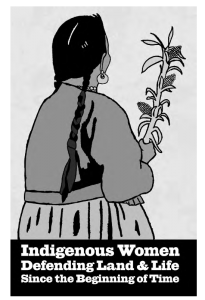NO REDD Papers – Volume One
 This booklet aspires to broaden the debate on the forest offset scam known as Reducing Emissions from Deforestation and Forest Degradation (REDD) mechanism.* It is not a comprehensive overview on REDD nor does it pretend to be. It aims to highlight critical perspectives that are frequently drowned out by large NGOs, corporative lobbies, governments, carbon traders, international financial institutions and the United Nations.
This booklet aspires to broaden the debate on the forest offset scam known as Reducing Emissions from Deforestation and Forest Degradation (REDD) mechanism.* It is not a comprehensive overview on REDD nor does it pretend to be. It aims to highlight critical perspectives that are frequently drowned out by large NGOs, corporative lobbies, governments, carbon traders, international financial institutions and the United Nations.
This collection of articles reveals how REDD is being used to establish a new set of tradable property rights based on trees and other environmental services, while at the same time propping up extractive industries. From an environmental perspective, REDD will not save the climate nor protect forests, nor will it stop dangerous emissions levels. In fact, REDD will offer polluting industries a way to avoid emissions reduction through cheap REDD offsets and allow them to actually increase pollution.
From an indigenous and human rights perspective, REDD criminalizes the Indigenous Peoples and local communities who protect and rely on forests. Furthermore, there are no mandatory enforceable REDD safeguards at the national or sub-national level that would guarantee protection of the rights of Indigenous Peoples and forest-dependent communities. Meanwhile, carbon traders eager for the large sums of money offered by REDD schemes are already forcing Indigenous and forest-dependent Peoples to sign away their land rights. Several examples of how this is already happening are highlighted in this booklet.
The articles are clustered in three sections: The first section explains how REDD is intrinsically linked to carbon markets and explores various financing mechanisms. The second section critiques some of the destructive players and features of REDD including extractive industries and GMO trees. The third section looks at case studies and how REDD is being implemented at the local level including current impacts and reactions.
REDD is the wrong direction. The grassroots and social movements demand to be heard and this collection allows us to hear and heed some of these brave and inspiring voices.
